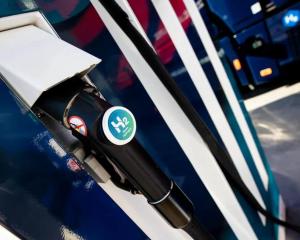Craigs Investment Partners broker Chris Timms said two, but possibly three, OCR cuts were being forecast.
''This will provide ongoing support for equities, given that dividend yields remain highly attractive, as well as keeping the currency on the back foot.''
Greece was in a serious situation but now was not the time to panic, he said.
The country had been cut off from emergency funding and planned to hold a referendum at the weekend asking the public whether they supported the harsh terms suggested by creditors.
If they voted ''yes'', there would be a slow return to normality as banks were allowed access to funding and withdrawal controls were relaxed.
If it was a ''no'' vote, Greece would remain cut off, the banks would struggle to fund the real economy and the country would fall deeper into recession.
Putting the crisis into perspective, Greece represented less than 2% of European gross domestic product (GDP) and 0.3% of the world economy - about the same as New Zealand, Mr Timms said.
New Zealand's largest trading partner in the region was Germany, which took 1.4% of exports.
The entire euro zone only accounted for 5% of New Zealand's exports.
''The economic implications for New Zealand are limited and only a handful of NZX-listed companies have any exposure to the region.''
Despite being very small, the situation posed risks to the broader financial system, he said.
It was the ''contagion'', or potential flow-on effects, people worried about.
But there were some key differences compared with 2008, when Lehman Brothers collapsed, or the euro crisis of 2011 and 2012.
Private sector exposure to Greece was much lower today than it had been in the past.
In 2011 and 2012, a lot of the Greek debt was held by the private sector outside Greece.
Following the bail-outs and debt restructurings, the vast majority of the debt was now held directly by euro zone officials and the International Monetary Fund.
This time, the European Central Bank (ECB) was better prepared, with crisis management tools already operating, Mr Timms said.
The ECB had proven its ability to intervene in government bond markets with quantitative easing, the European stability mechanism was fully operational and the Outright Monetary Transaction mechanism made the ECB the lender of last resort.
Lastly, Europe was in better shape economically than in previous years.
''We've seen eight consecutive quarters of positive economic growth and one business activity survey last week posted its strongest reading in four years.
''Trouble spots like Ireland, Spain and Italy have lower budget deficits than a few years ago and economic reforms have begun.''
Ireland and Portugal had both achieved ''clean exits'' from their respective bail-out programmes, he said.
The current dramas now being witnessed could have a silver lining for future potential issues in weaker European countries.
Portugal and Ireland were due to hold elections within the next year and the problems being seen in Greece might dissuade Greeks from voting for populist, anti-establishment parties like Syriza, the current Greek leaders.
There were not many winners from a ''Grexit'' and Greece was probably better off in the union rather than out on its own, Mr Timms said.
The parallel with Argentina was often drawn - the South American nation defaulted in 2001 before recovering quite quickly into much better shape.
The commodity producer was lucky enough to benefit from a strong commodity market in the following years.
For investors, there would almost certainly be further volatility over the short term but it was not the time to panic, he said.
Greece was small and the flow-on effects would be limited and manageable - especially given the progress made in recent years and the much stronger position the United States was now in.
''For those willing to take a long-term view, there will be undoubtedly be buying opportunities over coming weeks,'' Mr Timms said.
Implications for New Zealand
The economic linkages between Greece and New Zealand are limited, with the majority of New Zealand-listed companies predominantly exposed to the domestic economy and places like Australia. The outlook for Australia and China is of much greater importance to New Zealand. In that regard, Craigs Investment Partners expects the currency to remain at current levels and probably drive lower. That would help the export sector, including dairy exports.












